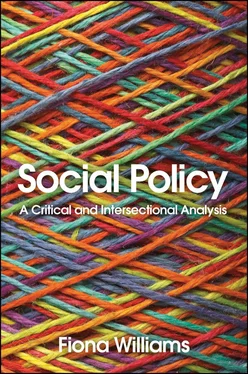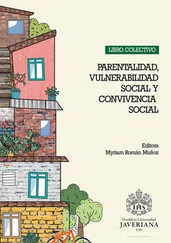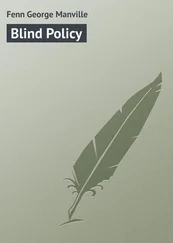42 38
43 39
44 40
45 41
46 42
47 43
48 44
49 45
50 46
51 47
52 48
53 49
54 50
55 51
56 52
57 53
58 54
59 55
60 56
61 57
62 58
63 59
64 61
65 63
66 64
67 65
68 66
69 67
70 68
71 69
72 70
73 71
74 72
75 73
76 74
77 75
78 76
79 77
80 78
81 79
82 80
83 81
84 82
85 83
86 84
87 85
88 86
89 87
90 88
91 89
92 90
93 91
94 92
95 93
96 94
97 95
98 96
99 97
100 98
101 99
102 100
103 101
104 102
105 103
106 104
107 105
108 106
109 107
110 108
111 109
112 110
113 111
114 112
115 113
116 114
117 115
118 116
119 117
120 118
121 119
122 120
123 121
124 122
125 123
126 124
127 125
128 126
129 127
130 128
131 129
132 130
133 131
134 132
135 133
136 134
137 135
138 136
139 137
140 138
141 139
142 140
143 141
144 142
145 143
146 144
147 145
148 146
149 147
150 148
151 149
152 150
153 151
154 152
155 153
156 154
157 155
158 156
159 157
160 158
161 159
162 160
163 161
164 162
165 163
166 164
167 165
168 166
169 167
170 168
171 169
172 171
173 173
174 174
175 175
176 176
177 177
178 178
179 179
180 180
181 181
182 182
183 183
184 184
185 185
186 186
187 187
188 188
189 189
190 190
191 191
192 192
193 193
194 194
195 195
196 196
197 197
198 198
199 199
200 200
201 201
202 202
203 203
204 204
205 205
206 206
207 207
208 208
209 209
210 210
211 211
212 212
213 213
214 214
215 215
216 216
217 217
218 218
219 219
220 220
221 221
222 222
223 223
224 224
225 225
226 226
227 227
228 228
229 229
230 230
231 231
232 237
233 238
234 239
235 240
236 241
237 242
238 243
239 244
240 245
241 246
242 247
243 248
244 249
245 250
246 251
247 252
248 253
249 254
250 255
251 256
252 257
253 258
254 259
255 260
256 261
257 262
258 263
259 264
260 265
261 266
262 267
263 268
264 269
265 270
266 271
267 272
268 273
269 274
270 275
271 276
272 277
273 278
274 279
275 280
276 281
277 282
278 283
279 284
280 285
281 286
282 287
283 288
284 289
285 290
286 291
287 292
288 293
289 294
290 295
291 296
292 297
293 298
294 299
295 300
Social Policy
A Critical and Intersectional Analysis
FIONA WILLIAMS
polity
Copyright © Fiona Williams 2021
The right of Fiona Williams to be identified as Author of this Work has been asserted in accordance with the UK Copyright, Designs and Patents Act 1988.
First published in 2021 by Polity Press
Polity Press
65 Bridge Street
Cambridge CB2 1UR, UK
Polity Press
101 Station Landing
Suite 300
Medford, MA 02155, USA
All rights reserved. Except for the quotation of short passages for the purpose of criticism and review, no part of this publication may be reproduced, stored in a retrieval system or transmitted, in any form or by any means, electronic, mechanical, photocopying, recording or otherwise, without the prior permission of the publisher.
ISBN-13: 978-1-5095-4040-2
A catalogue record for this book is available from the British Library.
Library of Congress Cataloging-in-Publication Data
Names: Williams, Fiona, Professor, author.
Title: Social policy : a critical and intersectional analysis / Fiona Williams.
Description: Cambridge, UK ; Medford, MA : Polity Press, 2021. | Includes bibliographical references and index. | Summary: “A leading figure in the field offers her view on key questions for social policy and its future”-- Provided by publisher.
Identifiers: LCCN 2020053296 (print) | LCCN 2020053297 (ebook) | ISBN 9781509540389 (hardback) | ISBN 9781509540396 (paperback) | ISBN 9781509540402 (epub)
Subjects: LCSH: Social policy--21st century. | Social problems--History--21st century.
Classification: LCC HN18.3 .W538 2021 (print) | LCC HN18.3 (ebook) | DDC 306.09/05--dc23
LC record available at https://lccn.loc.gov/2020053296LC ebook record available at https://lccn.loc.gov/2020053297
The publisher has used its best endeavours to ensure that the URLs for external websites referred to in this book are correct and active at the time of going to press. However, the publisher has no responsibility for the websites and can make no guarantee that a site will remain live or that the content is or will remain appropriate.
Every effort has been made to trace all copyright holders, but if any have been overlooked the publisher will be pleased to include any necessary credits in any subsequent reprint or edition.
For further information on Polity, visit our website: politybooks.com
I am extremely indebted to John Clarke, Wendy Hollway and Janet Newman for their invaluable encouragement, discussions and comments on drafts of the book. My thanks go to Ruth Lister for talks and walks over the Yorkshire Dales and, for their interest, ideas and conversations, to Rianne Mahon, Greg Marston, Ann Orloff, Coretta Phillips, Jane Pillinger, Sasha Roseneil, Tom Shakespeare, Paul Stubbs and the late Bob Deacon. I am very grateful to Mike Farren for taming the bibliography. For care, love and support I thank Rowena Beaty, Jean Carabine, Emilyn Claid, Rowan Deacon, Joe Deacon, Brian and Maureen Lawrence, Gillean Paterson, and the Wharfedale Poets. Special thanks go to Yvette Huddleston and Mandy Sutter for Friday night drinks throughout the pandemic in gardens and parkland, come rain or shine, in person or in spirit.
A source of intellectual stimulation was my association as advisor with Ito Peng’s international project Gender, Migration and the World of Care and Jenny Phillimore’s cross-national Welfare Bricolage project. I thank the Compass zoom discussion groups for rich debate on political strategies and activism.
An earlier version of chapter 3was published in The Struggle for Social Sustainability , edited by Chris Deeming (Policy Press, 2021).
Finally my grateful thanks go to Jonathan Skerrett and Karina Jákupsdóttir at Polity Press for their patience and encouragement.
I dedicate this book to my grandchildren Zephyr, Bodhi, Nova, Delaney and Victor in the hope that the earth they inherit and change will be more flourishing, just and humane.
Terminology changes. This is especially the case where those social categories constituted through social relations of power and inequality are the focus of contestation. An important first principle is to respect the terms that members of social categories prefer to use to describe how they identify while recognizing that these terms will vary. For example, in the UK, disability studies uses the term ‘disabled people’ whereas many international organizations such as the United Nations refer to ‘persons with disabilities’. Another example is the acronym LGBTQI+, which refers to sexual orientation (lesbian, gay and bisexual) as well as gender identity (queer, transgender, and intersex), while ‘+’ allows for differences within, across and outside those categories. A second guideline is to avoid terms that deprive groups of their personhood, such as ‘ the poor’ or ‘ the elderly’. It is more humanizing to talk of ‘older people’ or ‘people living in (or with) poverty’. A third consideration is how to employ those general terms – race, disability, gender – which register the political significance of relations of power without homogenizing the experiences of racism, sexism, disability, and so on. This is particularly an issue for race, where, to begin with, it is important to be clear that the concept is a social construct and not based upon any biological or essentialist difference. For that reason it is often placed within quotation marks as ‘race’. Accepting its social construction enables analysis of how race is given meaning over time and place. This book is particularly concerned with processes of racialization in social politics – that is to say, how groups come to be defined as racial subjects and the unequal power relations and inequalities that contribute to and flow from these processes. The concept of racialization allows an understanding that racism operates in various ways, constructing difference through culture, religion, ethnicity, nationality, citizenship status or language, as well as intersecting with class, gender, sexuality, disability, etc.
Читать дальше












